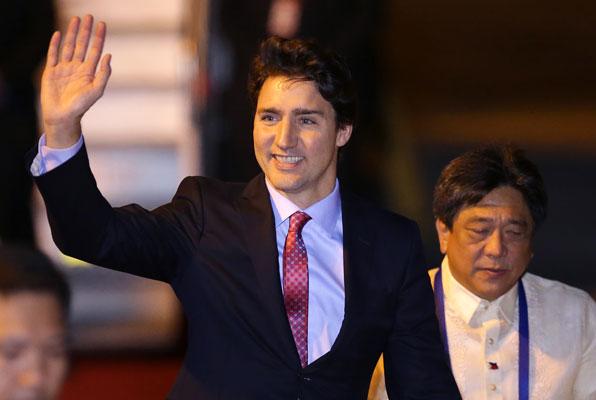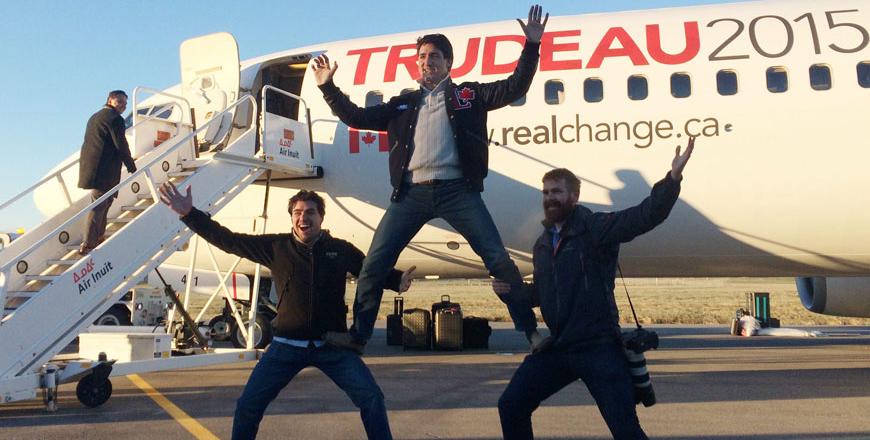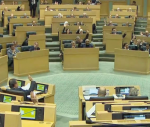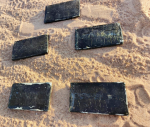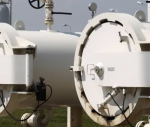You are here
Canada to end air strikes in Iraq, Syria Feb. 22
By AFP - Feb 08,2016 - Last updated at Feb 08,2016
OTTAWA — Canada announced Monday it will end air strikes targeting the Daesh terror group in Iraq and Syria and bring home its six fighter jets on February 22.
In doing so, Prime Minister Justin Trudeau is going against public opinion.
The Liberal leader had pledged during the campaign prior to legislative elections last year to end the air strikes, which he described Monday as being good for achieving "short-term military and territorial gains" but not for "long-term stability for local communities".
Some two-thirds of Canadians polled recently, however, support the bombing mission or even want it to be expanded, in the wake of Daesh attacks in Jakarta and in Burkina Faso that killed seven Canadians in January.
The withdrawal of Canada's warplanes is seen as a symbolic blow against unity in the US-led coalition that also includes Australia, Bahrain, Belgium, Britain, Denmark, France, Jordan, the Netherlands, Saudi Arabia, Turkey, and the United Arab Emirates.
Canada has been the fourth-largest contributor to the coalition, until now.
In place of the F-18 Hornet fighter jets, Ottawa will triple the number of special forces training Kurdish militia in northern Iraq to about 210, while a CC-150T Polaris refuelling and two CP-140 Aurora surveillance aircraft will continue to play roles in the coalition, Defence Minister Hargit Sajjan told a news conference with Trudeau and senior officials.
Their deployment, which comes with hundreds of aircraft ground personnel, will be until at least March 31, 2017.
Humanitarian aid
As well, the Canadian government will provide about Can$1.6 billion ($1.2 billion) in development and humanitarian aid and other efforts over three years to respond to the crisis in Iraq and Syria and to address the impact on Jordan, Lebanon and the wider region, added Foreign Minister Stephane Dion and International Development Minister Marie-Claude Bibeau.
Those funds will include help for Jordan and Lebanon to bolster security and feed and house refugees displaced by the conflict from neighbouring countries.
Dion also promised a beefed up Canadian diplomatic role in the region.
“We know Canada is stronger, much stronger, than the threat posed by a murderous gang of thugs who are terrorising some of the most vulnerable people on Earth,” Trudeau said.
“Call us old-fashioned, but we think that we ought to avoid doing precisely what our enemies want us to do. They want us to elevate them, to give in to fear, to indulge in hatred, to eye one another with suspicion and to take leave of our faculties.”
“The lethal enemy of barbarism isn’t hatred, it’s reason. And the people terrorised by ISIL [Daesh] every day don’t need our vengeance, they need our help.”
About 70 Canadian military trainers have been deployed in northern Iraq since November 2014. Parliament had voted to extend the mission to March of this year, before the change in government.
The leftist New Democratic Party has called for a complete withdrawal from the Syria conflict, while main opposition Tory leader Rona Ambrose accused the Trudeau administration of “taking a shameful step backward” from the fight against “the greatest terror threat in the world” when close allies were stepping up their military efforts.
“A great deal has changed since the prime minister made his ill-advised promise to end our combat role against ISIS,” said Ambrose. “ISIS and ISIS-inspired attacks have spread beyond the combat theatre, and even claimed the lives of Canadians in recent weeks,” she said in a statement.
“Halting and degrading ISIS [Daesh] is more critical than ever to keep people safe.”
Over the past two years, Canadian fighter jets have flown 1,356 sorties over Iraq and Syria, striking weapons caches and Daesh group fighting positions. The latest strikes focused on the vicinity of Ramadi and Mosul.
Ramadi was recaptured from Daesh at the end of last month while the Iraqi army is deploying thousands of soldiers to a northern base in preparation for operations to retake the Daesh group’s hub of Mosul, officials in Baghdad said Monday.
Daesh has suffered major losses since the height of its territorial control in 2014, but still controls significant areas of Iraq’s Anbar and Nineveh provinces, as well as in neighbouring Syria.
Related Articles
OTTAWA — Canada will send more military trainers to Iraq to drill local troops combatting the Daesh terror group, Prime Minister Justin Trud
OTTAWA — Canada is taking a "wider" look at the danger posed by the Daesh terror group in Libya and the Sinai peninsula, its defence ministe
Ottawa — The Liberals' landslide victory in Canada has given Justin Trudeau a strong mandate to usher in a new style of government with a re


